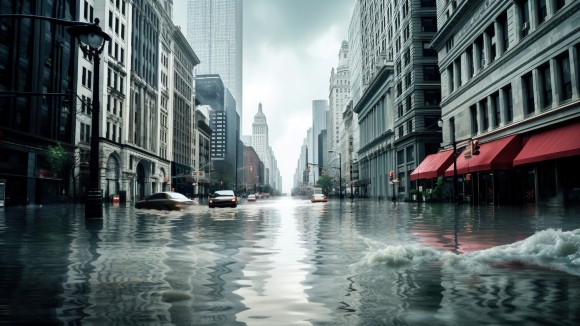Collection
Sustainable Water Management in Urban Areas
- Submission status
- Open
- Submission deadline
Urban water management faces mounting challenges—rapid urbanization, resource depletion, pollution, and climate-induced disasters. By 2050, water scarcity, aggravated by diverse contamination sources, may threaten nearly half the urban population. Marginalized groups endure severe disparities in access to clean water and sanitation, leading to health and socio-economic inequalities. The diverse nature of cities further impacts water security across neighborhoods, requiring tailored approaches for effective water management. Addressing these complexities demands a concerted effort using advanced modelling techniques, monitoring instruments, sustainability principles, and resilient measures to navigate the intricate landscape of urban water systems. Yet, sustainable water management in urban areas embraces a holistic approach, encompassing water supply, distribution, treatment, reuse, and drainage, all while prioritizing environmental, social, and economic sustainability. It integrates strategies spanning water supply, treatment, reuse, and drainage to meet current needs without jeopardizing future access to clean water. This involves optimizing water usage, improving wastewater management, predicting hydro-climate variability, deploying innovative water management technologies, promoting efficient infrastructure, and enhancing resilience against climate impacts. Community engagement and innovative technologies aid in real-time monitoring and management. This collection aims to disseminate practical applications, groundbreaking research, and fresh insights into urban water management, steering urban water systems toward intelligence, sustainability, and resilience.
The scope of this collection includes, but is not limited to:
- Technology innovations for sustainable water management in urban areas, such as water-demand modelling and forecasting
- Intelligent water technologies and data analytics for stormwater management, inundation prediction, and water monitoring (smart-water) in urban areas, such as AI, machine learning, and IoT
- Integrated water resource management
- Urban landscape dynamics in hydrological processes
- Climate change adaptation strategies
- Sustainable and resilient water infrastructure
- Water and wastewater treatment in urban areas, such as wastewater reduction and water recycling and reuse
- Water quality assessment and pollution control of emerging contaminants, such as pharmaceuticals and microplastics
- Water-energy nexus in urban areas
- Community engagement and equity as well as policy and governance for sustainable water management in urban areas

Editors
-
Fi-John Chang, PhD
Distinguished Professor, Department of Bioenvironmental Systems Engineering, National Taiwan University, Taiwan
-
Edwin E. Herricks, PhD
Professor, Civil & Environmental Engineering, University of Illinois Urbana-Champaign, USA
-
Chong-Yu Xu, PhD
Professor, Department of Geosciences, Oslo University, Norway
-
Kuo-Lin Hsu, PhD
Professor, Civil and Environmental Engineering, University of California, Irvine, USA
-
Elena Toth, PhD
Professor, Department of Civil, Chemical, Environmental, and Materials Engineering, University of Bologna, Italy
-
Yu-Feng Lin, PhD
Director, Illinois Water Resources Center, Principal Research Hydrogeologist, Prairie Research Institute, University of Illinois at Urbana-Champaign, USA
-
Vahid Nourani, PhD
Professor, Department of Civil Engineering, University of Tabriz, Iran
